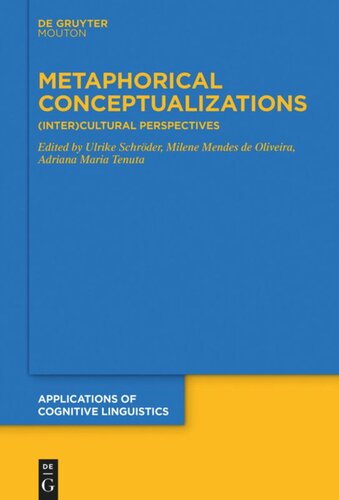

Most ebook files are in PDF format, so you can easily read them using various software such as Foxit Reader or directly on the Google Chrome browser.
Some ebook files are released by publishers in other formats such as .awz, .mobi, .epub, .fb2, etc. You may need to install specific software to read these formats on mobile/PC, such as Calibre.
Please read the tutorial at this link: https://ebookbell.com/faq
We offer FREE conversion to the popular formats you request; however, this may take some time. Therefore, right after payment, please email us, and we will try to provide the service as quickly as possible.
For some exceptional file formats or broken links (if any), please refrain from opening any disputes. Instead, email us first, and we will try to assist within a maximum of 6 hours.
EbookBell Team

5.0
50 reviewsThe book deals with the important shift that has been heralded in cognitive linguistics from mere universal matters to cultural and situational variation. The discussions examine cognitive and cultural linguistics’ theories in relation to the following areas of research: (i) metaphorical conceptualization; (ii) the influence of culture on metaphor, metonymy and conceptual blends; (iii) the impact of culture and cognition on metaphorical lexis; (iv) the interface of pragmatics and cognition when metaphor is studied in situ, that is, in face-to-face as well as in virtual multimodal interaction; (v) the application of insights from metaphorical conceptualizations to language teaching, and (vi) recent methods for revealing (inter)cultural metaphorical conceptualizations (corpus-based approaches, gesture studies, etc.). The book brings together cognitive, functional, and (inter)cultural approaches.